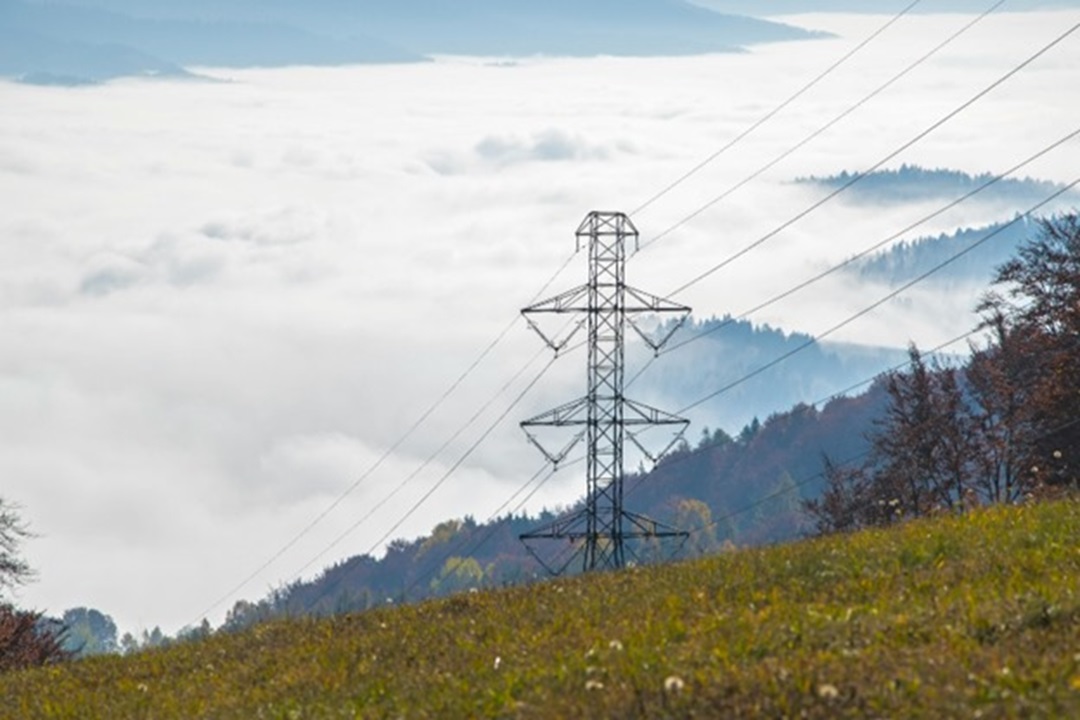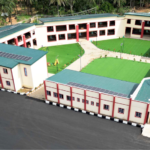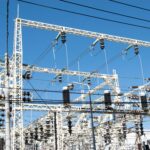- Home
- Features
- Startup Zone
- Projects
- Policies
- Shop
- Policies
- Projects
- Startup Zone
- Country Spotlight
- Analysis
- Tech
- Policies
- Projects
- Startup Zone
- Country Spotlight
- Analysis
- More
- Beyond the Kalashnikov: Africa’s Shift Toward Technology-Driven Warfare
- Afrail Express: Uniting a Continent on Rails
- AFRICA’S ENERGY CORRIDORS: CONNECTING POWER, PEOPLE, AND PROSPERITY
- Startup Lions Campus: Empowering Kenya’s Digital Generation
- L’Art de Vivre’s Le Paradis de Mahdia: Tunisia’s Model for Sustainable Luxury
- The Lobito Corridor: Rewiring Africa’s Trade Arteries Through Strategic Infrastructure
- AFRICA’S GREEN ENERGY TRANSITION: A BEACON OF HOPE FOR CLIMATE ACTION
- Dangote Refinery: Showcasing Africa’s Project Success Story
- AFRICA GREEN ECONOMY: ALL YOU NEED TO KNOW
- The Most Important Amicus Brief in the History of the World
- The Rise of Indigenous UAVs: Africa’s Drone Capabilities in Warfare and Surveillance
- AFRICA’S LARGEST OIL PRODUCERS: A COMPREHENSIVE OVERVIEW
- Beyond the Kalashnikov: Africa’s Shift Toward Technology-Driven Warfare
- Afrail Express: Uniting a Continent on Rails
- AFRICA’S ENERGY CORRIDORS: CONNECTING POWER, PEOPLE, AND PROSPERITY
- Startup Lions Campus: Empowering Kenya’s Digital Generation
- L’Art de Vivre’s Le Paradis de Mahdia: Tunisia’s Model for Sustainable Luxury
- The Lobito Corridor: Rewiring Africa’s Trade Arteries Through Strategic Infrastructure
- AFRICA’S GREEN ENERGY TRANSITION: A BEACON OF HOPE FOR CLIMATE ACTION
- Dangote Refinery: Showcasing Africa’s Project Success Story
- AFRICA GREEN ECONOMY: ALL YOU NEED TO KNOW
- The Most Important Amicus Brief in the History of the World
- The Rise of Indigenous UAVs: Africa’s Drone Capabilities in Warfare and Surveillance
- AFRICA’S LARGEST OIL PRODUCERS: A COMPREHENSIVE OVERVIEW
- Beyond the Kalashnikov: Africa’s Shift Toward Technology-Driven Warfare
- Afrail Express: Uniting a Continent on Rails
- AFRICA’S ENERGY CORRIDORS: CONNECTING POWER, PEOPLE, AND PROSPERITY
- Startup Lions Campus: Empowering Kenya’s Digital Generation
- L’Art de Vivre’s Le Paradis de Mahdia: Tunisia’s Model for Sustainable Luxury
- The Lobito Corridor: Rewiring Africa’s Trade Arteries Through Strategic Infrastructure
- Startup Zone
Top Insights
The Role of Smart Grids in Africa’s Energy Future

Smart grids are key to Africa’s future energy plans as it works to meet its pressing energy demands. These technologically advanced systems offer robust solutions to facilitate the transition to clean energy and tackle several core challenges, such as energy losses, inefficient transmission, and the pressing demand for a reliable power supply.
Dr. Akinwumi Adesina, President of the African Development Bank (AfDB), aptly noted, “No industry can grow, industrialise, or be competitive in the dark.” His remarks underscore the significance of energy accessibility, which is at the heart of the recent African Energy Summit: “Mission 300” in Dar es Salaam, Tanzania. This initiative aims to provide electricity to 300 million Africans by 2030, positioning energy access as a crucial driver of economic growth, job creation, and poverty alleviation across the continent.
READ ALSO: Taming the Grid: What’s Holding Back Africa’s Power Transmission Revolution?
Why Smart Grids Matter
Smart grids are intelligent electricity networks that enhance the reliability, efficiency, and sustainability of energy distribution. By utilising advanced technologies—such as sensors, Internet of Things (IoT), and real-time analytics—smart grids facilitate seamless communication between utilities and consumers. This enables better management of energy supply and demand, which is critical as Africa transitions to renewable energy sources like solar, wind, and hydropower.
With nearly 600 million people in Africa still lacking access to reliable electricity, the potential benefits of smart grids cannot be overstated. For instance, in Nigeria, where energy theft and inefficient transmission represent significant challenges, smart grids can minimise losses and ensure a reliable supply. Predictive analytics can identify theft, optimise grid performance, and curtail inefficiencies, ultimately boosting the reliability of the power supply.
Enhancing Renewable Energy Integration
One of the significant advantages of smart grids is their ability to integrate diverse renewable energy sources effectively. Africa is endowed with abundant renewable resources, yet these remain largely untapped. Smart grids can efficiently manage renewable energy inputs—such as solar and wind—enabling communities to harness clean energy reliably.
The “Dar es Salaam Declaration,” which emerged from the recent summit, acknowledges the urgent need to scale up investments in clean energy projects, particularly in rural and off-grid areas. Stakeholders proposed innovative financing mechanisms, including expanding public-private partnerships and utilising green bonds to support the continent’s energy transition.
Economic and Social Implications
Access to electricity is a fundamental human right and a cornerstone of economic development. President Bola Tinubu of Nigeria emphasised the imperative for African leaders to collaborate on energy access initiatives, stating, “Let us work together to create a brighter future for our citizens, where every African can access reliable and affordable energy.”
Reliable energy access enables industrialisation, improves healthcare services, and fosters educational opportunities. As Kevin Kariuki, AfDB’s Vice President for Power, Energy, Climate, and Green Growth, highlighted, energy access opens doors to various social sectors, ultimately empowering whole communities.
The economic implications are profound. With the increase in electric vehicle (EV) adoption across Africa, smart grids play a crucial role in meeting rising energy demands. For instance, smart grids facilitate the development of EV charging infrastructure while ensuring stability in the electricity supply. This dual role not only supports a burgeoning transport sector aimed at reducing emissions but also creates new job opportunities in the technology and renewable energy sectors.
Addressing Challenges for Implementation
While the advantages of smart grids are clear, several challenges remain. Africa faces an annual infrastructure financing gap of approximately $100 billion, necessitating innovative funding solutions. Moreover, regulatory inconsistencies and limited grid capacities—especially in rural and peri-urban areas—must be addressed to ensure the successful implementation of smart grid technologies across the continent.
Promoting transparent regulatory frameworks and encouraging community engagement are essential to align energy policies with local needs. As various stakeholders have noted, collaboration among governments, development banks, private investors, and local communities is critical for achieving the ambitious goals set forth at the Mission 300 initiative.
The Path Forward
The integration of smart grids in Africa represents not just an upgrade to existing infrastructure but a leap toward sustainable development. With the young population—over 60% under age 25—Africa has a unique opportunity to harness this demographic advantage and foster a generation of innovators who can drive the transition toward smart, green cities.
Investment in smart infrastructure not only positions Africa for energy resilience but also helps reduce reliance on fossil fuels, curbing greenhouse gas emissions and safeguarding the environment. By prioritising sustainable energy access, Africa can build a more robust economy, promote social equality, and ensure that a brighter, energy-enabled future is attainable for all its citizens.
In conclusion, smart grids are essential to Africa’s energy future. By integrating renewable energy, improving efficiency, and fostering collaboration, these systems can drive the transformation needed to meet the continent’s energy ambitions while paving the way for sustainable socio-economic development.
Recent Posts
Related Articles
Cutting-Edge Environmental Conservation Projects and Their Champions
Environmental conservation has entered a decisive era. As climate change accelerates, biodiversity...
ByafricaprojectJanuary 28, 2026Clean Water Access Projects Improving Lives in Underserved Regions
Access to clean and reliable water remains one of Africa’s most pressing...
ByafricaprojectJanuary 19, 2026Industrial Corridors Attracting Global Investors
Across Africa, industrial corridors are emerging as strategic economic arteries driving industrialization,...
ByafricaprojectJanuary 16, 2026The Engineers Behind Africa’s Tallest and Most Iconic Towers
Across Africa, the rise of tall and iconic towers is reshaping skylines...
ByafricaprojectJanuary 15, 2026












